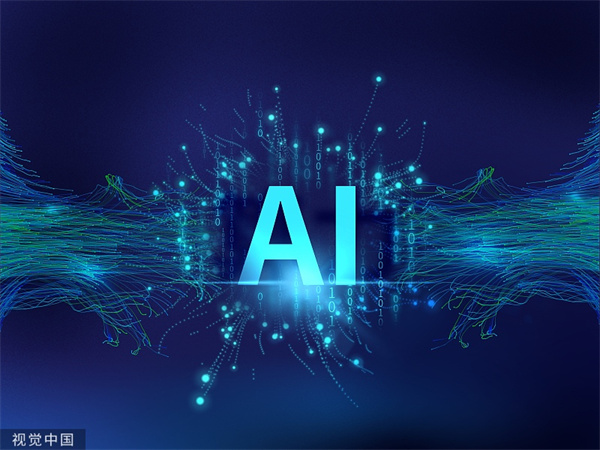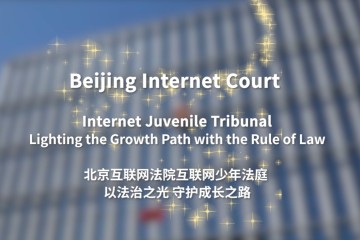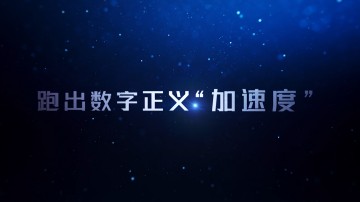Courts grapple with disputes over infringement, status of works

[Photo/VCG]
As tech giants and startups worldwide have embraced and applied generative artificial intelligence, a series of disputes over the technology have presented new legal challenges.
During last month's Boao Forum for Asia Annual Conference 2024, some guest speakers expressed their optimism on the development prospects of AI, noting that the boom in the technology is driving the growth of China's digital economy and reshaping the economic landscape.
For example, China's AI and intelligent speech giant iFlytek has used a number of applications in specific fields such as education and healthcare, seeing AI plus as a big opportunity to develop new quality productive forces, said Xinhua News Agency.
Qualcomm has also called for global and industrial cooperation on AI state governance, international collaboration, and setting standards that would allow for its universal use, the agency said.
At the same time, various disputes related to AI have ended up in Chinese courts, prompting the country to explore a legal framework and measures adapted to the AI age.
In late November, the Beijing Internet Court announced a ruling that recognized the copyright of an image generated via AI, which was regarded as a landmark judicial decision that set the standards and commercial rules for the new technology.
The lawsuit was initiated by a man surnamed Li, who used text-to-image AI software to create a picture of a young woman and posted it on Xiaohongshu social media platform.
After he found that a blogger surnamed Liu had posted the image on another online platform without his permission, Li sued Liu claiming copyright infringement.
The court ruled in favor of Li and deemed his AI-generated image was an artwork. In the first ruling of its kind in China, the court ordered Liu to apologize and pay 500 yuan ($70) to Li in compensation.
"The verdict was made because Li had continuously added prompts and repeatedly adjusted the parameters to come up with the picture, which reflected his aesthetic choices and personal judgment," said Zhu Ge, the judge who heard the case.
She said that assigning generative AI content a legal status under certain circumstances, such as in this case, encouraged creators to be innovative with the new technology and advance its emerging industrial development.
However, she emphasized that future disputes involving AI-generated content that could be identified as artwork will be judged on a case-by-case basis.
In December, the court also began hearing China's first rights case related to a voice generated by AI. A voice-over artist surnamed Yin alleged five companies used an AI-powered app to reproduce her voice and sold the rights to that voice to other platforms for profit. The ruling will be announced at a later date.
A number of cases in which AI was used to commit crimes or infringed upon people's legitimate rights have also triggered attention around the world.
At the end of last year, two men in Zhejiang province were sentenced to a year and one month in prison, with a six-month probationary period, for fabricating and spreading false information through videos generated by AI.
In the United States in January, AI-generated fake online images of pop singer Taylor Swift also alarmed the White House, which said social media companies have an important role in enforcing their own rules to prevent the spread of misinformation and nonconsensual, intimate imagery of real people.
Liu Zhaohui, vice-president of 360 Technology Co, said at a forum in Jinan, Shandong province, in September: "We're being challenged by the technology in areas such as how to ensure the legitimate use of data and how to protect the rights of data owners."
Expressing his willingness to exchange opinions with experts from all over the world on digital issues, Liu called for joint efforts from government agencies, enterprises, academies, industrial associations and the public to protect IP and people's rights in the AI era.
Su Gu, general counsel of Li Auto, said that AI-related services and products in the auto industry have some legal risks and suggested the country look at more specific legal measures and regulations to address any issues that arise.

 Judicial White Paper
Judicial White Paper
 Play
Play Play
Play Online Lawsuit Guide
Online Lawsuit Guide Beijing Internet Court Lawsuit Service WeChat Account
Beijing Internet Court Lawsuit Service WeChat Account  Beijing Internet Court WeChat Account
Beijing Internet Court WeChat Account